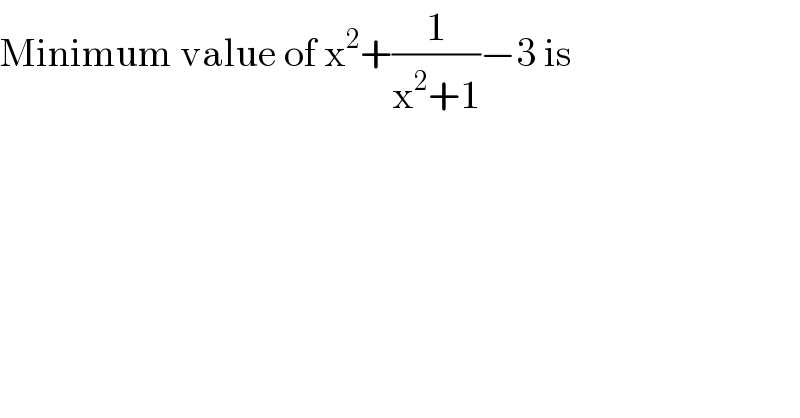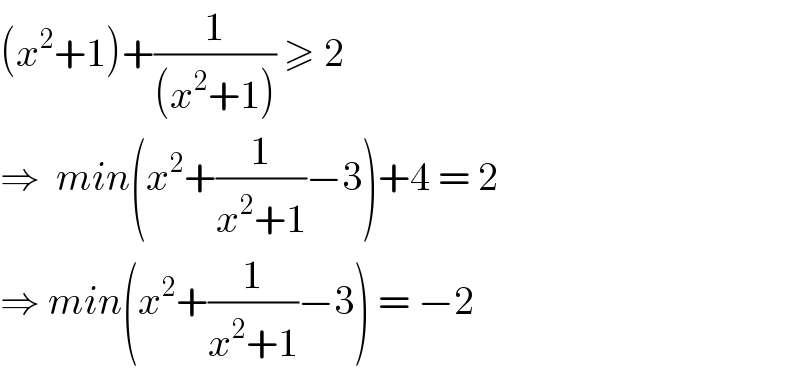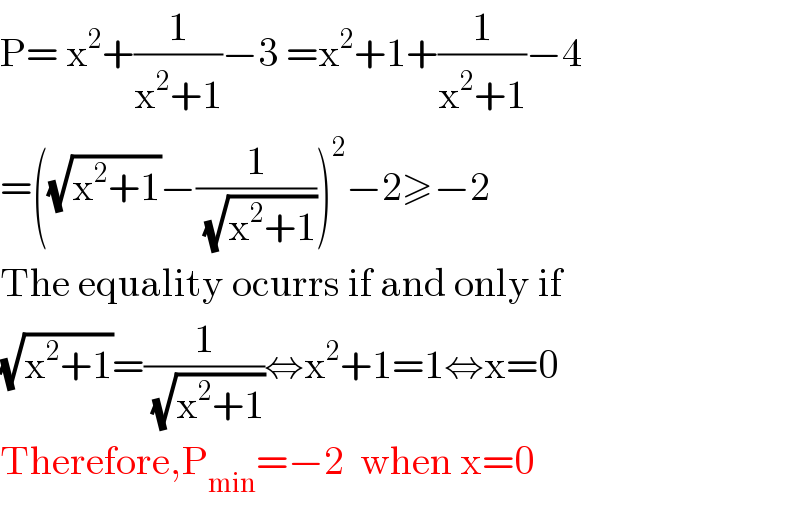Question Number 112624 by Aina Samuel Temidayo last updated on 09/Sep/20

Answered by MJS_new last updated on 09/Sep/20
![x^2 +1+(1/(x^2 +1))−4 x^2 +1=t≥1 t+(1/t)−4 (d/dt)[t+(1/t)−4]=1−(1/t^2 )=0 ⇒ t=1 ⇒ x^2 +1=1 ⇒ x=0 ⇒ answer is −2](https://www.tinkutara.com/question/Q112632.png)
Answered by ajfour last updated on 09/Sep/20

Commented by Aina Samuel Temidayo last updated on 09/Sep/20

Answered by 1549442205PVT last updated on 09/Sep/20

